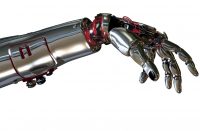“People of the same trade seldom meet together, even for merriment and diversion, but the conversation ends in a conspiracy against the public, or in some contrivance to raise prices.”—Adam Smith, An Inquiry into the Nature and Causes of the Wealth of Nations (1776)
Apologies to our readers for quoting the talisman of neoliberalism, but it seemed fitting in the light of the fall from grace of the Tipperary man Declan Kelly, chief executive of Teneo, a global company that describes itself as the world’s pre-eminent CEO advisory firm.
While always having access to the coercive arms of the state, capitalists prefer to adopt less abrasive, more PR-savvy methods when possible. This is where Kelly and the Teneos of this world come in.
The multi-million company promoted itself as a firm providing advisory and troubleshooting services to chief executives of the world’s most powerful conglomerates. It did so by its mastery of media spin-doctoring and even more so by its astonishing range of influential contacts, many employed on large retainers. This network included well-known entertainers and sports people, senior officials in worldwide NGOs, retired high-ranking military and intelligence personnel, and one-time leading politicians.
For a number of years before disagreements caused a break-up, Teneo’s most powerful connection was with the former president of the United States Bill Clinton, after whom the Clinton Foundation is named. Ostensibly designed to address global poverty and inadequate health services, the foundation held annual conferences attended by politicians and business leaders. All the while in the background was Teneo, facilitating the CEOs of vast transnational networks and striking deals while consorting with such figures as Barack Obama, George Bush, and Tony Blair.
As its relationship with the Clintons soured, Teneo cultivated a position within Global Citizenship, an organisation based in New York engaged, in its own words, in “targeting world leaders to end extreme poverty by 2030.” It’s not clear, though, what level of poverty it tolerates. However, to carry out its mission Global Citizenship stages high-profile pop concerts where big business meets powerful politicians meet mega-celebrities, all in an informal setting. Whether eliminating “extreme poverty” or promoting excessive profits is the real agenda, we trust our readers can make up their own mind.
With much happening behind the scenes, this year’s public face featured the singer Jennifer Lopez and other mega-stars. Notables endorsing the gathering included Joe Biden, with Harry Windsor and his wife, Megan, attending in person. It was at this grand bash that the career of Teneo’s CEO, Declan Kelly, imploded after allegations of inappropriate behaviour towards women present led to his resignation. As a consequence, the company’s prospects are now in doubt.
Although the difficulties faced by Teneo and its shareholders, or the troubled personal life of Declan Kelly, are not the main issue, the story nevertheless offers an insight into how the system works. Ostensibly concerned with the well-being of the world’s disadvantaged, these networks play a significant role in helping maintain capitalist hegemony. While promoting a myth that transnational corporations working with imperialism have an interest in solving global poverty, they simultaneously facilitate discreet networking between political power-brokers and avaricious global conglomerates.
Although usually played out on a global stage with the world’s most powerful people, it would be a mistake to believe that this story has little relevance for Ireland. Kelly always retained an interest in Ireland. A main sponsor of the Tipperary hurling team, he also recruited well-known Irish personalities to work for Teneo. Moreover, in 2009 Hillary Clinton appointed him US economic envoy to Northern Ireland.
While there is no direct evidence to link Teneo or Declan Kelly to economic activity in Ireland, it raises the question whether his network played a role in some of the harmful interventions by transnationals and in particular vulture funds. For example, most of the NAMA cut-price sell-off went to American speculators. And the scandal continues as the right-wing triumvirate governing the Republic recently exempted vulture funds from a 10 per cent stamp duty surcharge on the bulk buying of houses.
Of course the root cause of this evil is not, strictly speaking, Teneo and Kelly. They simply illustrate the method, as others would happily fill their shoes. At the heart of all this malpractice is capitalism and the class system sustaining it.
The answer to that problem remains, as always . . . socialism.






